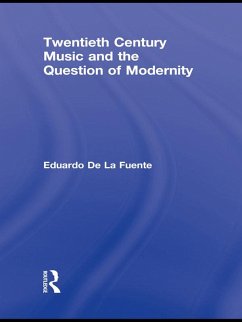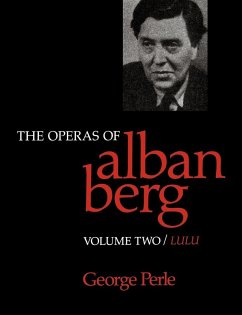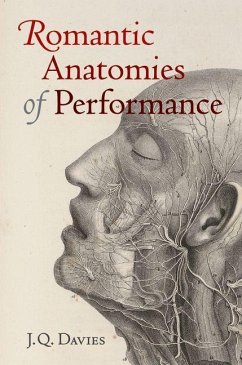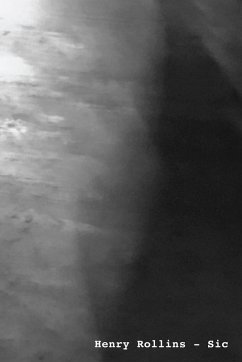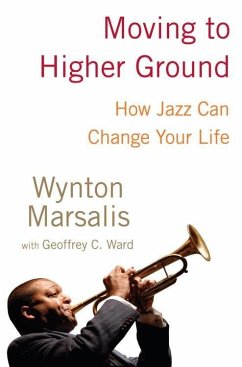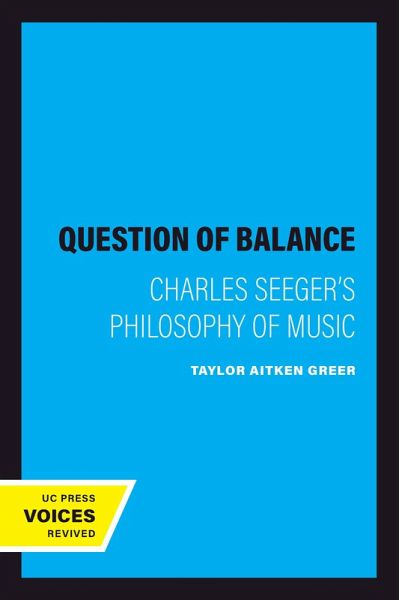
A Question of Balance (eBook, ePUB)
Charles Seeger's Philosophy of Music

PAYBACK Punkte
26 °P sammeln!
One of this century's most influential musical intellects takes center stage in Taylor Greer's meticulously wrought study of Charles Seeger (1886-1979). Seeger left an indelible mark in the fields of musicology, music criticism, ethnomusicology, and avant-garde musical composition, but until now there has been no extended appreciation and critique of Seeger's work as a whole, nor has an accessible guide to his texts been available.Exploring the entire corpus of Charles Seeger's writing, A Question of Balance highlights the work of those persons who most influenced him, especially Henri Bergson...
One of this century's most influential musical intellects takes center stage in Taylor Greer's meticulously wrought study of Charles Seeger (1886-1979). Seeger left an indelible mark in the fields of musicology, music criticism, ethnomusicology, and avant-garde musical composition, but until now there has been no extended appreciation and critique of Seeger's work as a whole, nor has an accessible guide to his texts been available.
Exploring the entire corpus of Charles Seeger's writing, A Question of Balance highlights the work of those persons who most influenced him, especially Henri Bergson, Bertrand Russell, and Ralph Perry. Invited to inaugurate the music department at the University of California's Berkeley campus in 1912, Seeger became keenly aware of his deficiencies in general education and put himself on a rigorous regimen of intellectual development that included studying history, anthropology, political theory, and philosophy. For the remainder of his life his ideas about music heavily influenced the development of ethnomusicology and systematic musicology.
Charles Seeger is perhaps best known as the father of the folk singers Pete, Mike, and Peggy Seeger and as the husband of the innovative American composer Ruth Crawford. This book makes clear that Seeger was an extremely important thinker and educator in his own right. Seeger's intellectual curiosity was as eclectic as it was enthusiastic, and Greer skillfully weaves together the connections Seeger made between music, the humanities, and the sciences. The result is a luminous tapestry depicting Seeger's ideal schemes of musicology. At the same time it reflects the turbulence and vitality in American musical life during the early decades of the century.
One of this century's most influential musical intellects takes center stage in Taylor Greer's meticulously wrought study of Charles Seeger (1886-1979). Seeger left an indelible mark in the fields of musicology, music criticism, ethnomusicology, and avant
Exploring the entire corpus of Charles Seeger's writing, A Question of Balance highlights the work of those persons who most influenced him, especially Henri Bergson, Bertrand Russell, and Ralph Perry. Invited to inaugurate the music department at the University of California's Berkeley campus in 1912, Seeger became keenly aware of his deficiencies in general education and put himself on a rigorous regimen of intellectual development that included studying history, anthropology, political theory, and philosophy. For the remainder of his life his ideas about music heavily influenced the development of ethnomusicology and systematic musicology.
Charles Seeger is perhaps best known as the father of the folk singers Pete, Mike, and Peggy Seeger and as the husband of the innovative American composer Ruth Crawford. This book makes clear that Seeger was an extremely important thinker and educator in his own right. Seeger's intellectual curiosity was as eclectic as it was enthusiastic, and Greer skillfully weaves together the connections Seeger made between music, the humanities, and the sciences. The result is a luminous tapestry depicting Seeger's ideal schemes of musicology. At the same time it reflects the turbulence and vitality in American musical life during the early decades of the century.
One of this century's most influential musical intellects takes center stage in Taylor Greer's meticulously wrought study of Charles Seeger (1886-1979). Seeger left an indelible mark in the fields of musicology, music criticism, ethnomusicology, and avant
Dieser Download kann aus rechtlichen Gründen nur mit Rechnungsadresse in A, D ausgeliefert werden.





